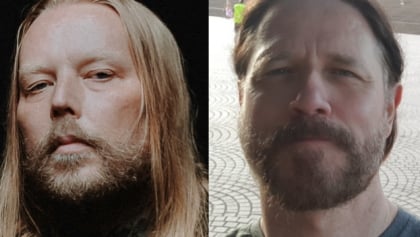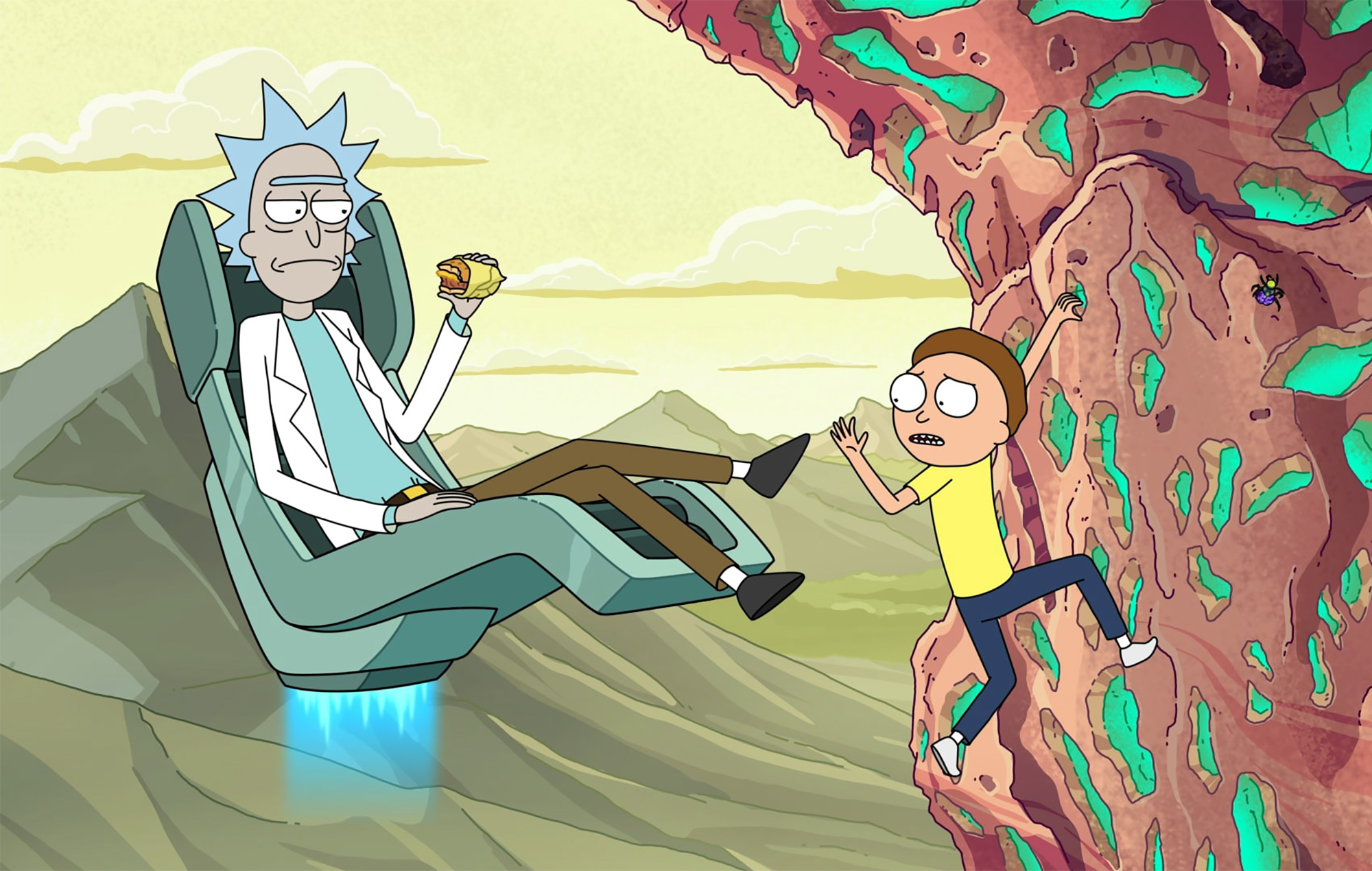
It doesn’t matter if you’ve been upgrading your consoles for decades, lockdown Animal Crossing cosily enveloped you back to the fold in 2020, or even if you’ve never touched a controller, you’re aware that video games in 2022 are a key cultural touchpoint. Measured up against both music and movies, the games industry is officially the most lucrative entertainment medium in the world and Ukie – The Association for UK Interactive Entertainment – has been watching it grow since 1989. It’s not quite as long in the tooth as a certain Italian plumber (Mario’s just over 40 now in case you’re wondering) but Ukie is the oldest video games trade body in the world, constantly on a quest to make the UK the best place to make video games.
And heading it up as CEO over the last decade is key changemaker Dr Jo Twist OBE, whose passion for the medium has deftly transformed the company to meet the challenges of the modern video games market. Literally billions of new players and the explosion of the online digital gaming age mean it’s been 10 transformative years for the UK games industry since Twist was approached for, and obviously accepted, the job. But her response to the first call about it wasn’t what you’d expect. “I thought, ‘a trade association?! That sounds really dull,’” she grins over Zoom from London. “It sounds like it would be a room full of suits, essentially. And if you actually Google that – ‘trade association’ – on Google Images it’s basically what you get. A bunch of men around the boardroom. Which is not what boards are or should be!”

But after conversations with existing chair, Andy Payne, Twist could suddenly see the attraction. In 2012, the association was going through its own reinvention, rebranding from ELSPA, the Entertainment and Leisure Software Publishers Association, to Ukie. “It was such an amazing challenge, and I thought I would love nothing better than to actually be around the most amazing people who make games and who sell games. Who are all part of the games ecosystem. To actually make that my full time job, as opposed to trying to argue the case for games in my full time job! That’s how I ended up here.”
But what does Ukie actually do? It’s probably better if Twist sums up the organisation. “We’re here to support, promote, and to grow the industry,” she states simply. “We are the industry’s voice, but we essentially have the mission statement to make the UK the best place in the world to make, sell, and play games. And so we really are ‘on the shoulder of the industry’, as Andy Payne once told me. We’re looking down the road at opportunities, but also at potential barriers, and trying to clear the way so that we make the most amazing business environment and creative environment for the wonderful talent that we have.”
“I thought ‘a trade association?! That sounds really dull,’”
Rewind, though – back from the OBE for service to the creative industries in 2016, the awards, charity work, the BAFTA chair position, and other day to day roles that would require more than just caffeine for most people – and Twist has always pioneered interactive media. Even her doctorate in the ’90s was about young people in fan communities and social interactions online – the earliest of metaverses, if you’ll excuse the 2022 buzzword for spaces shared with real people online.
“I got interested in this thing called the internet that had been given to us,” she explains. “And I started to become really interested in how communities were formed and how identity was played out in different online social contexts, like chat rooms and bulletin boards.”
Twist cut her media teeth in her first job at the BBC as a tech reporter. At daily kids news show Newsround, she and a small team of broadcast journalists were breaking new ground with fresh interactivity. They were even making games. Twist’s crowning glory was ‘Poacher Patrol’ in which you used bodily fluids – “mostly spit and vomit, I think there was some poo, but that was about as far as we went” – to repel poachers. This was all at the height of Harry Potter mania in the early 00s. Young people wanted to talk about the things they loved and they wanted to do it online. Twist’s team were the first to build a website to extend the short eight-minute experience of the show, as well as setting quizzes for viewers and learning what fans and communities wanted.

From here, she progressed up the ranks at the BBC before moving over to Channel 4 as Commissioning Editor for Education. “I was commissioning games, which is what I’d always wanted to do,” she smiles. “Games and comic books and all kinds of really cool things that push the boundaries when it comes to interactivity, and particularly young people.” It was from Channel 4 that Twist was headhunted for the CEO role at Ukie – and rightly so, with a CV that impressive.
Back in 2012, this meant adapting to an industry that was in flux as the possibilities of fully digital gaming were suddenly endless. Twist took the reins at a pivotal moment. How did she deal with it? “Well, nobody knows how to be a CEO. That’s the first thing,” she says. “So it was all full of surprises. My best friend gave me a book called ‘You’re In Charge, Now What?’ which was the best book to give me because nobody knows how to do this for the first time.”

In 2012 the UK games industry was maturing. Fast. The traditional experience of going into a shop to buy a game was switching to a mere button press on digital storefronts, and the App Stores were on the rise. It meant more mobile development companies, more companies switching over to digital-first (or digital-only!), and more unprecedented logistical challenges.
“It really was the beginning of an incredible golden era, particularly for indies in the UK and in terms of development in the UK,” notes Twist and she’s not exaggerating. 4J Studios in Dundee had just ported a certain blocky game called Minecraft to console for the first time and Guildford based Hello Games were hard at work on No Man’s Sky. “All these things just happened at the same time, and really coincided with the opportunity for me to really reinvent the organisation. And, that is what we did! It took an amazing team to be able to do that. And Ukie still continues to reinvent itself because we have to match the evolution of an industry that evolves at a very rapid rate.”

In 2012, Ukie switched from being mostly publisher-led to working directly with development studios. When it comes to perfect case studies for growth and support, Twist cites Mediatonic, the developers of multiplayer game Fall Guys. Yes, the one with the jelly beans on legs battling it out across chaotic Takeshi’s Castle-style obstacle course nightmares. Back in 2005, the studio started out as a team of less than 20 people, a far cry from the 200+ staff making one of the most popular – and often joyously frustrating – games on the planet today. And Ukie was there with them at the beginning.
“We’ve been with Mediatonic through its journey so far and they have benefited from a lot of the services that we have offered members,” explains Twist. “Mediatonic was our first member, and we started to develop our International Trade programme and invent the products and services that businesses like that really needed. And that’s a classic example of a company that you see just ready to scale up, and they scale up over 10 years, and scale up to the extent that they then get invested in (and acquired by!) Epic. That’s an incredible story for them.”
“I thought: I would love nothing better than to actually be around the most amazing people who make games and who sell games. Who are all part of the games ecosystem.”
Ukie constantly lobbies for the games industry in the UK. Not content with securing Video Games Tax Relief for development studios, the company has even brought computer science back onto the school curriculum again in England and Wales, filling a gaping skills void that was causing problems for the industry, along with a lack of diversity in the industry. Despite the games industry’s staggering monetary successes – £2.66 billion was spent on gaming hardware alone in the UK in 2021 – there are still those who don’t understand, or value, games. And Twist wants to educate them all.
“That is a large part of what we do,” she nods. “The best way to tell your story, particularly to policymakers and to people who don’t necessarily understand games, is through evidence, research, data, numbers. And it’s why we do certain reports. It’s why we created the Games Map – which is just about to be refreshed – so that we can go to MPs and say: ‘did you know that there are X number of companies in your constituency on your doorstep who are making incredibly creative, innovative products that are sold the world over? And they are your voters. They vote for you or not’.
“These developers, they’re providing £5.3 billion to the economy collectively. That’s very compelling, and so is the creative story that we have to tell. We are a huge industry that the UK should be proud of and should value.”

Twist’s team is constantly reinforcing the message that games are made by humans and not machines, and education is a big part of that. This means outreach with schools and education programmes to ensure that people see the games industry as a career goal. As a result, the UK can continue to be, as Twist believes, the best place to make games.
“I truly believe the UK is the best place to make games. I think it’s down to the inherent amazing talent base that we’ve got in the UK,” she says. “We’ve got a whole bunch of really diverse, talented people across the creative industries – and the technology industries as well. And because games combine all of those skill sets, we need artists, we need musicians, we need audio designers, we need mathematicians. We need all kinds of skill sets! We are that brilliant apex between creativity, storytelling, technology, and innovation. We’ve got a very, very good, healthy business environment in the UK. It’s easy to set up a business, and I think just that cultural diversity really feeds into our creative diversity and our innovation.”

But that doesn’t mean there isn’t work to do. As well as an eye on climate change, Twist cites improving diversity and inclusion in the industry as big focusses for the future. While the industry has, as she says “come a long way in 10 years” there’s always more that can be done.
“We just published the second census of the games industry, which is incredibly important when you’re trying to benchmark and see where changes are happening or where you need to be – specifically targeting areas like the representation of Black and ethnic minorities in the industry,” Twist explains. “Different perspectives, different experiences, and lived experiences of life are critical to bring to any creative product, particularly if you’re telling stories. We want to see more diverse stories, more powerful characters who come from different backgrounds and have different abilities.”
“All these things just happened at the same time, and really coincided with the opportunity for me to really reinvent the organisation. And, that is what we did!”
There are plenty of positive stories to be drawn from the census – the number of women in the industry has doubled in a decade and the proportion of neurodiverse people is high as is the proportion of non-binary and LGBTQ+ people – but Twist is passionate about serious change. “We’ve got over 200 businesses who’ve signed up for the Raise the Game pledge, which continues to try and make sure that we’re helping people, whatever stage they’re on that journey and to understand how to diversify, how to be far more inclusive. One of the biggest challenges is socioeconomics – but that’s something that across the creative industries is a challenge.”
There’s also a talent shortage, which Twist sees as a clear mission for Ukie. “The cost of production is rising and a lot of that cost of production is people,” she explains. “And a lot of those people we’re in competition with other sectors for. So many other sectors are now talking about virtual production… about using unreal engine… about the metaverse. All of that talent and skillset lies within the games industry.” This means Twist will be hammering home the importance of essential computer science subjects to The Department of Education. “It is really important for our collective futures in creative industries.”

You don’t have to have been at industry events where Ukie is flying the flag (often quite literally in the form of Union Jack bunting) to feel the difference Twist has made in the industry. Pick up Fall Guys or a game from one of the hundreds of development studios of all sizes on Ukie’s books and there has probably been a helping hand along the way. Whether you’re playing Sea of Thieves from Rare, Forza Horizon 5 from Playground Games, or experiencing the true satisfaction of a first person high pressure hose in Powerwash Simulator from indie team FuturLab, Ukie has had a hand in development somewhere.
Ukie was also key over lockdown in an initiative to bring stay at home messaging to games, as well as working with mental health initiative The Calm Zone to use games as a form of connection during our loneliest times. The association is far from just that room of suits that Twist imagined she was coming into back in 2012. Ukie looks at the culture around games, educating parents on safe play, and constantly flying the flag for education around the medium when headlines about gaming addiction rear their ugly heads. If you can think of an unhealthy stereotype around games, Ukie has actually done its homework and tackled it head on.
“I truly believe the UK is the best place to make games”
And what about the highlights of the last ten years? Twist glows when she talks about her team. “I work with the most incredible people. It makes me very emotional thinking about the amazing team members that I’ve worked with over the last 10 years and continue to work with. I absolutely love Ukie as a place for people particularly who haven’t necessarily come from the games industry who have that experience at Ukie and then go off into amazing industry jobs.”
One very personal, reflective highlight from 2016 seems like the perfect place to wrap up our chat; it speaks to both the personal and professional side of Twist. “My mum died before I got the education job at Channel 4 and she was a teacher,” she says. “She would have been just unbelievably proud. I mean, she was Scottish so she used to call OBEs ‘Other Bugger’s Efforts’, but she would have been unbelievably proud to see me collect that medal for Contribution to Creative Industries. I have to pinch myself. That year was an amazing year. I got awarded the OBE in 2016.
“And then the [Brexit] referendum happened and then Trump got in and I was like, okay, ‘Well everyone else is having a shit year. I’ll just watch that DVD again’.”
And once she’s finished watching? Twist will be back on it. Further pushes for diversity across the industry as well as green commitments and noticeable talent shortages mean that the UK games industry still has plenty of room for growth. The pandemic has meant a spectacularly successful few years for games and that the world is gradually taking notice can only mean more success for the industry. Thankfully, Twist is on hand to make sure that the UK is a vital part of that.
Find out more about Ukie here.
The post How Ukie’s Dr Jo Twist OBE helped make the UK the best place in the world to make video games appeared first on NME.







